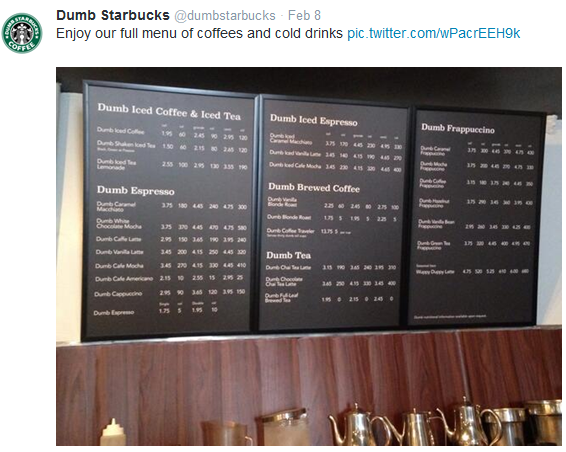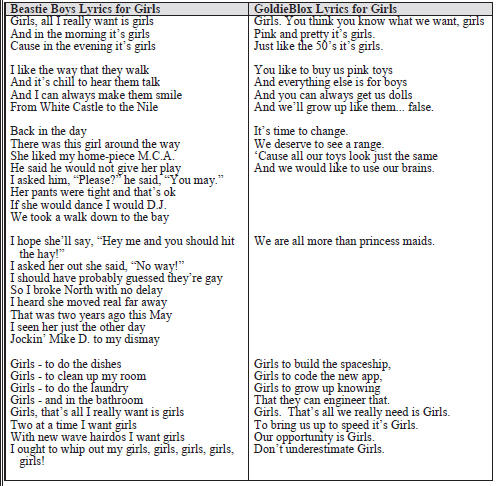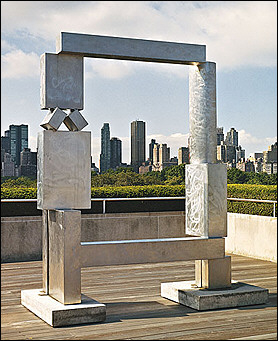Last year, the Ninth Circuit stood out amongst fair use decisions in its opinion in Seltzter v. Green Day, particularly in contrast to what has persuasively been dubbed the Second Circuit’s "know it when we see it" approach to transformativeness as annunciated in the Cariou v. Prince decision. By contrast, the potentially destabilizing effect of the Ninth Circuit’s highest profile copyright case in 2014 can scarcely be overstated. Unless and until the full court reverses a three-judge panel in Garcia v. Google, Inc., nearly every motion picture will be in peril of "infringement." The consequences for the First Amendment and for free expression would be devastating. Although it was not raised, expect fair use to come into play if the decision stands and the case heads back to the trial court. The film is clearly transformative precisely because the plaintiff argues that her performance was unknowingly changed in service of a message she found offensive.
"Innocence of Muslims" Copyright Decision Against Google Could Put Distribution of Nearly Any Movie at Risk
Topics: Walter Sobchak, Copyright Act, Feist, Prince v. Cariou, Libya, Digital Millennium Copyright Act, DMCA, Youssef, YouTube, Innocence of Muslims, Green Day, Seltzter v. Green Day, Nothing Compares 2 U, prior restraint, 17 U.S.C. § 106, Cindy Garcia, Copyright, Prince, First Amendment, Google, Sinead O’Connor, Benghazi, work for hire
"Dumb Starbucks" Indeed a Prank, Health Department is Not Amused
As we suspected, the "Dumb Starbucks" store in Los Angeles claiming a right to copy Starbucks's logo and store design by relying on fair use turned out to be a prank after all (bolstered, as I did not realize yesterday by the fact that despite what the store said about selling coffee, they were actually just giving it away). It turns out that Nathan Fielder of Comedy Central was behind the whole thing, for use on his show "Nathan for You." Less funny for him was that yesterday the Los Angeles Board of Health closed the store for distributing food products without the proper licence.
Topics: Nathan for You, art gallery, Nathan Fielder, Dumb Starbucks, Copyright, Starbucks, Fair Use
Is "Dumb Starbucks" an Art Gallery in the Eyes of the Law?
News that a coffee shop had opened in Los Angeles entitled "Dumb Starbucks" has again raised the proper interpretation of fair use under U.S. intellectual property law into the realm of popular culture and commerce. Whereas last year’s Beastie Boys/GoldieBlox dustup (still ongoing) revolved primarily around copyright law, here the potential issue is one of trademark infringement. To stave off accusations of liability, the new enterprise has preemptively labeled itself an "art gallery." Will this hold up? Even Starbucks seems puzzled.
Topics: 505 U.S. 763, parody, Landham Act, Weird Al Yankovic, @dumbstarbucks, Green Day, Bad Starbucks, 17 U.S.C. § 107, 15 U.S.C. § 1115(b)(4), GoldieBlox, Copyright, Dr. Evil, Starbucks, Number Two, Twitter, Two Pesos Inc. v. Taco Cabana Inc., Beastie Boys, Fair Use, Merriam-Webster, Austin Powers
Now who’s rapping like it’s a commercial? The Beastie Boys counterclaim against GoldieBlox Web advertisement
After GoldieBlox announced with great fanfare that it would withdraw its claim seeking a declaratory judgment that its use in a video of the Beastie Boys song “Girls” was a fair use under the Copyright Act, many assumed that was the end of it and that the only point for discussion was GoldieBlox’s motivation. As we pointed out at the time, however, that “offer” was not accompanied by a dismissal of the already filed lawsuit. Presumably, the Beastie Boys either declined, or failed to respond, because the band has now answered the Complaint and filed counterclaims, alleging copyright and trademark infringement.
Topics: Cariou v. Prince, Copyright Act, Campbell v. Acuff Rose Music Inc., Green Day, Michael Diamond, Adam Yauch, “Girls”, GoldieBlox, Copyright, Adam Horowitz, Beastie Boys, Fair Use
GoldieBlox Declares a Truce with the Beastie Boys, What was That All About?
After the skirmish over whether GoldieBlox's video featuring the melody and parodied lyrics of "Girls" by the Beastie Boys was fair use or infringement, the company abruptly altered the video in question on its website. The same video is now accompanied by different music. The company also issued the following statement on its blog:
Topics: “Girls”, GoldieBlox, Copyright, Beastie Boys, Fair Use
GoldieBlox Parodies the Beastie Boys and “Girls”—Fair Use is Clear, What About Queen’s “Bohemian Rhapsody”?
Coverage has exploded this week of a dispute between the Beastie Boys and a company called “GoldieBlox,” over the latter’s use of the song “Girls” in a video encouraging engineering and structural play toys for girls. Despite coverage focusing on whether Goldie Box copied the Beastie Boys’ song (which is undisputed, really, and thus beside the the point in this case), the fair use of the earlier song is clear: the new version is a parody of a leering anthem, intended to subvert inherent sexism into a message of empowerment. Curiously, however, the fair use in another video on the company’s site using the Queen song “Bohemian Rhapsody” seems less clear, but so far unnoticed.
Topics: License to Ill, Copyright Act, Campbell v. Acuff-Rose Music, Queen, Digital Millennium Copyright Act, DMCA, Adam Yauch, “Bohemian Rhapsody”, “Girls”, GoldieBlox, Copyright, MCA, Beastie Boys, Fair Use
5Pointz Not of "Recognized Stature" Under the Visual Artists Rights Act? Court Takes the Narrow View and Paintings are Whitewashed
Amidst all the coverage over famed graffiti artist Banksy’s recent "residence" in New York and questions about how artistic license would fare against trespassing and graffiti laws (short answer: poorly), another graffiti case in New York this month has explored the reach of the Visual Artists Rights Act of 1990 (VARA). Ultimately, the law did not suffice to prevent the owner of the so-called "graffiti Mecca" from proceeding with its intended use of the property (and obliteration of the graffiti).
Topics: Carter v. Helmsley-Spear, Copyright Act, Inc., Graffiti Art, Visual Artists Rights Act, recognized stature, VARA, Jerry Wolkoff, Banksy, 17 U.S.C. § 106A, Erin Thompson, Copyright, 5Pointz, Litigation
Lauren Clay, the David Smith Estate, David Dodde, and Fair Use: Are We Learning Anything?
A pair of recent disputes over sculpture, fair use and moral rights highlights the ongoing concern that Prince v. Cariou has made things worse, not better. The first concerns the estate of sculptor David Smith, and sculptor Lauren Clay. As Art in America put it, “Clay's works replicate the shapes of Smith's large metal ‘Cubi’ sculptures at tabletop scale in materials such as paper, and with faux wood grain or marble finishes.’ The Smith estate, through its reprsentatives at VAGA, took issue with this as a violation of Smith’s copyright. During the discussion, VAGA apparently proposed an agreement in which Clay would agree either not to sell the works, or only to display them with a disclaimer that the works were not authorized.
Topics: Donn Zaretsky, Yellow Submarine, Art in America, La Grande Vitesse, Prince v. Cariou, the Donald Smith Estate, Visual Artists Rights Act, Sergio Muñoz Sarmiento, VARA, Alexander Calder, Copyright, Fair Use, Lauren Clay, David Dodde
Free Speech, Fair Use, and Meaning—Recapping An Evening of Copyright and the Visual Arts at the Sotheby’s Institute
Last night was a fascinating evening at the Sotheby’s Institute in New York, where Judith Prowda was celebrating the launch of her new book Visual Arts and the Law (Lund Humphries 2013). The book, not at all incidentally, is a must-have.
Topics: free speech, Richard Prince, Amy Adler, Campbell v. Acuff-Rose Music, Judith Prowda, Canal Zone, Patrick Cariou, Lund Humphries, Boies Schiller, American Society of Media Photographers, Yes Rasta, Kirkland & Ellis, NYU Law School, Events, Picture Archive Council of America, Shepard Fairey, Dale Cendali, Copyright, Hope, Visual Arts and the Law, transformative, First Amendment, Associated Press, Sotheby’s Institute, Fair Use
IBA Annual Conference Starts Today in Boston
I’ll be at the International Bar Association Conference all week here in Boston, starting tonight. Among others, I’m looking forward to the sessions below (the first featuring my partner at Sullivan & Worcester, Laura Steinberg, the trademark panel featuring my partner at Sullivan & Worcester Kim Herman, and others given by the Art, Cultural Institutions and Heritage Law Committee). If you follow the Art Law Report and you’ll be in attendance, welcome to Boston, and drop a line or a Tweet.
Topics: Laura Steinberg, Annual Conference, Kim Herman, Sullivan & Worcester LLP, Events, Copyright, Boston, IBA, International Bar Association






